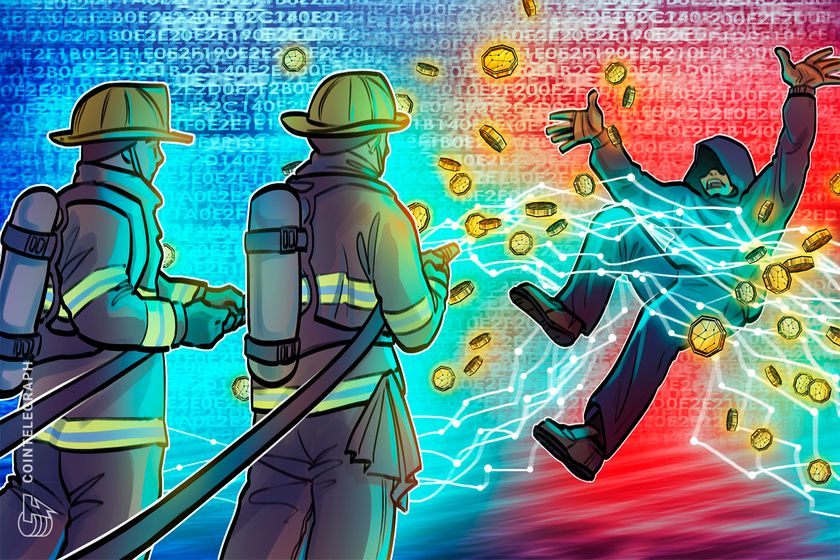The team defended itself against claims of excessive false positives, suggesting it was so effective that it caused a crypto drainer to give up in frustration.

News
Own this piece of crypto history
Blockaid’s Web3 security platform has caused at least one crypto drainer to shut down in frustration, according to an April 25 X post by the service provider. Blockaid also defended itself against claims that it has too many “false positives,” stating that a service with zero false positives will always allow some malicious apps to drain users’ funds.
Blockaid is a developer of security software that attempts to recognize malicious smart contracts on Ethereum Virtual Machine (EVM) networks, including Ethereum, BNB Chain, Polygon, Arbitrum, and others. It is integrated into multiple wallets and apps, including MetaMask, Coinbase wallet, Open Sea, Zerion, and others. When users attempt to transact with a contract that Blockaid identifies as malicious, these wallets and apps warn users that their funds may be drained if they interact with it.
Blockaid posted an image showing a purported announcement from a crypto drainer service that had been used in the past to steal crypto. The announcement claimed that “[W]e have shut down because of Blockaid and the low hit-success rate.” The crypto drainer team suggested that thieves should stop using networks that are popular with Blockaid users, as they’re just not profitable anymore. “I suggest draining on the Bitcoin network or maybe using a SOL drainer with the blowfish bypass,” the drainer team stated. Blockaid’s software is currently not compatible with the Solana and Bitcoin networks.
 Crypto drainer reportedly quits because of Blockaid. Source: Blockaid.
Crypto drainer reportedly quits because of Blockaid. Source: Blockaid.
This post was part of a larger thread related to “false positives,” or cases where a security service accidentally flags legitimate apps as malicious. In the thread, Blockaid acknowledged that it sometimes mistakenly flags legitimate apps. However, it claimed that this only happens in 0.0002% of attempted transactions. The team argued that achieving a false positive rate of zero is not a worthy goal, as this can only be achieved by allowing some malicious apps to bypass filters and drain users of funds. It stated:
“The statistical nature of these systems means that we have to work towards striking a balance: having zero false positives inevitably means that malicious transactions will get through the defenses, resulting in easy to develop bypasses, and ultimately not disrupting the drainer economy.”
Even so, Blockaid said it wants to further reduce false positives. Blockaid announced that it is opening a new web portal that will allow users and developers to report these mistakes, which it hopes “will allow for finding and fixing false positives as fast as possible.”
Related: ERC20 wallet drainer receives UK business registration
Web3 users lost more than $300 million to crypto drainers in 2023, according to a report from Web3 security platform Scam Sniffer. In October, Blockaid announced that its service had been integrated into Web3 wallet MetaMask, which has more than 30 million users. On March 13, Coinbase wallet also announced that it had quietly integrated the service into its wallet five months earlier.



